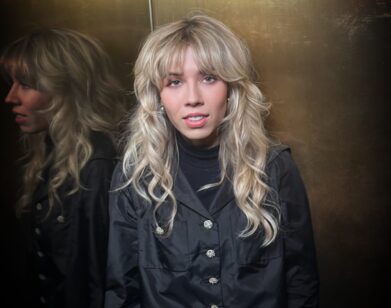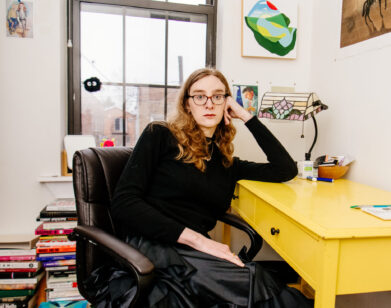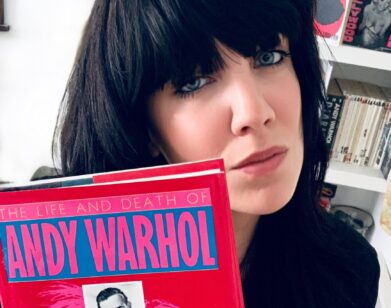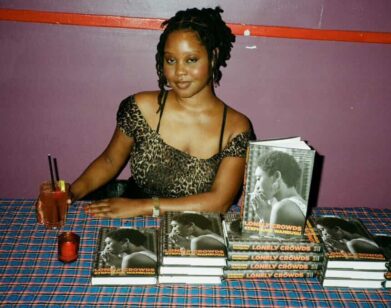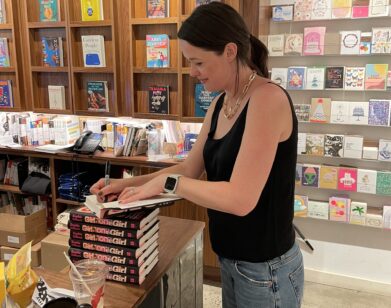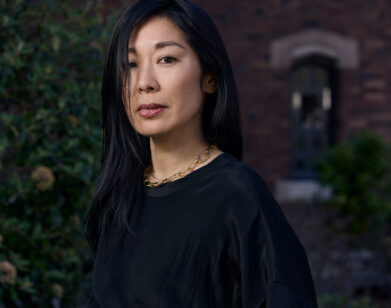Kate Elizabeth Russell Explores Love, Sex, and Madness in My Dark Vanessa
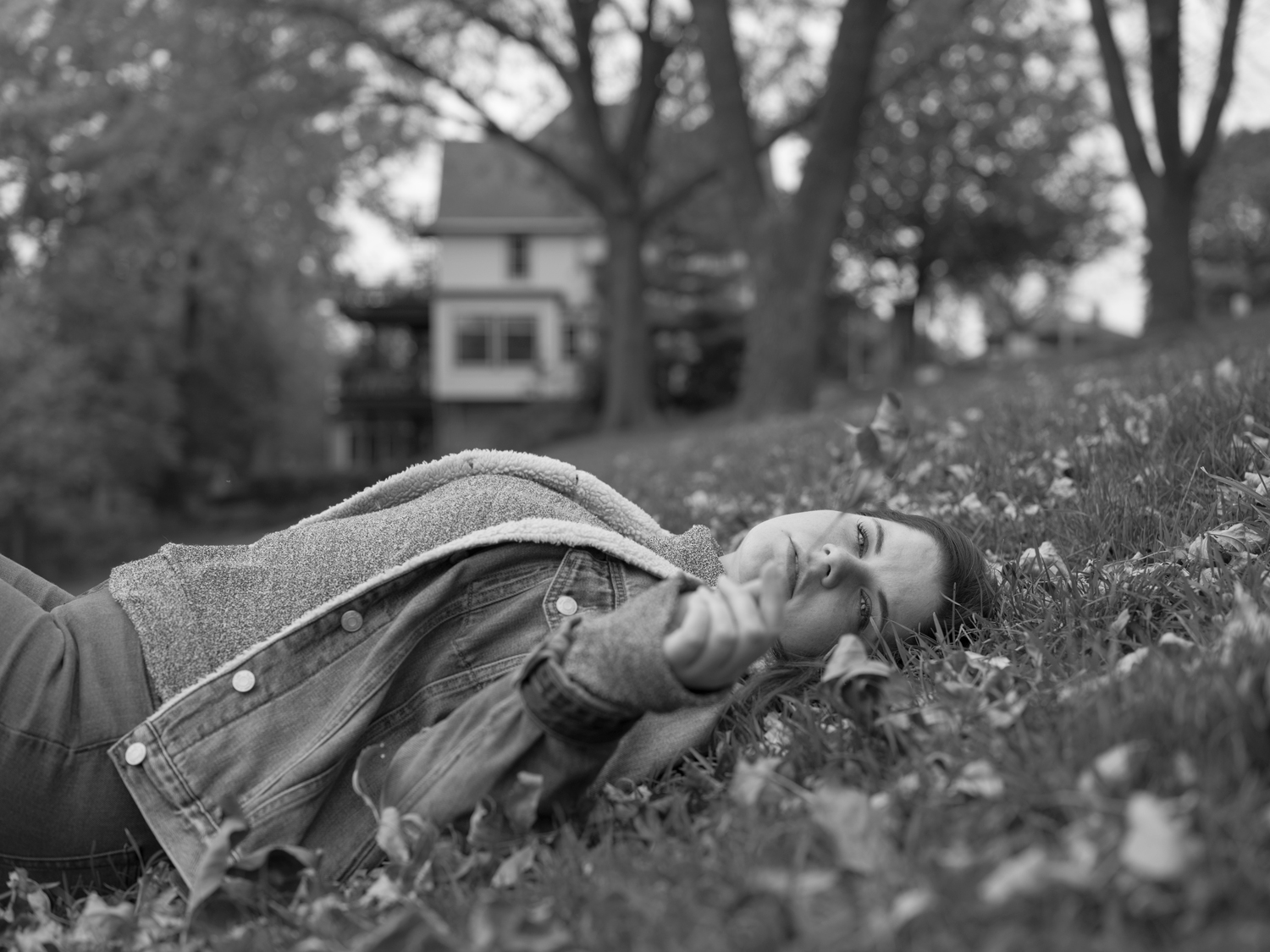
Photo by David Kasnic.
Every state has a literary pedigree, but very few can compete with Maine when it comes to examining the American psyche. From E.B. White to Stephen King, “Down East” has proved fruitful soil for both majesty and madness in the land of literature. This spring, the Pine Tree State adds another major talent to its writing pool with the publication of Kate Elizabeth Russell’s taboo shattering debut, My Dark Vanessa. The 35-year-old author was born in the tiny town of Clifton, whose population hovers in the three digits, out-side of Bangor. Russell began writing at a very young age, and it might have been Bangor’s favorite son, King himself, who helped make a career as a writer seem feasible. “Everyone in Bangor has a Stephen King connection,” Russell says, her’s being that her father works as a DJ at one of the local radio stations King owns.
My Dark Vanessa is a daring and deeply unsettling exploration of love, sex, loyalty, and manipulation, written in stunning prose and offering few easy answers. Told in alternating chapters by the protagonist Vanessa Wye at the age of 15 in the year 2000 and at the age of 32 in the year 2017, the book traces the affair (and its subsequent fallout) between a high school student and her 42-year-old English teacher. While Vanessa may seem born of the #MeToo movement, Russell actually began working on it 18 years ago, as a teenager. And it was not a King novel that haunted her into tackling the subject of abuse but Vladimir Nabokov’s 1955 classic Lolita. “I read it at 14, and I fell in love with it,” she recalls. “I started noticing how this Lolita archetype of the teenage temptress was so embedded into the culture at large. Britney Spears was really popular then, and she was relentlessly sexualized. It was completely normal for grown men to sexualize girls, but how girls were supposed to react to being sexualized was less clear. I ended up channeling all of that into these characters.” Russell doesn’t shy away from sex in the book, or its difficult, often violent consequences of tenderness, jealousy, and vengeance that carry over into the main character’s adulthood.
Despite a few autobiographical similarities between the author and her protagonist, Russell doesn’t want readers confusing her fiction for a veiled memoir. “Novels, especially coming-of-age novels by young women, tend to be read as being autobiographical,” she says. “But this is not my story, it’s fiction, and it does a disservice to the reader to see it otherwise. Novels can offer readers a chance to have discussions about divisive or difficult topics in a way that I’m not sure nonfiction always does.”
This article appears in the Winter 2019 issue of Interview magazine. Subscribe here.

